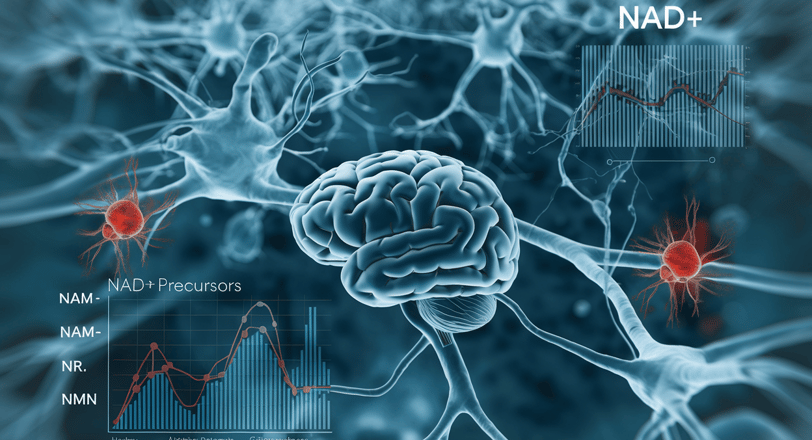Exploring the Potential of NAD+ Precursors in Cognitive Enhancement in Neurogenic Disease Models
A recent systematic review has highlighted the therapeutic potential of nicotinamide adenine dinucleotide (NAD+) precursors in improving cognitive deficits in preclinical models of various diseases, including Alzheimer's, diabetes, and traumatic brain injury. The findings suggest that these compounds, such as nicotinamide (NAM), nicotinamide riboside (NR), and nicotinamide mononucleotide (NMN), not only reduce inflammation and oxidative stress but also enhance mitochondrial function, which could open new avenues for the treatment of cognitive disorders in humans. The need for further research to validate these effects in clinical studies is emphasized.
NEWS
2/25/20251 min read
A new review has revealed the therapeutic potential of nicotinamide adenine dinucleotide (NAD+) precursors in treating cognitive impairments associated with various diseases in preclinical rodent models, including Alzheimer’s, diabetes, traumatic brain injury, vascular dementia, and schizophrenia. The authors argue that cognitive decline may be driven by factors such as inflammation, oxidative stress, and mitochondrial dysfunction.
Key Findings:
Improvement of cognitive function: Compounds like nicotinamide (NAM), nicotinamide riboside (NR), and nicotinamide mononucleotide (NMN) have shown promising results in improving cognitive function in various disease models. These precursors may increase NAD+ levels, which have positive effects on neuronal health and mitochondrial function.
Underlying mechanisms: NAD+ precursors appear to mitigate inflammation and oxidative stress associated with neurodegenerative disorders, offering protection against cellular damage and promoting DNA repair. These mechanisms are crucial for preserving brain health and combating cognitive decline.
Variability in results: Although significant improvements have been observed in various cognitive tests, the authors highlight that further research is needed to confirm the efficacy of these compounds in humans, as well as to determine the optimal dosages and treatment regimens.
In summary, the administration of NAD+ precursors could represent a promising new strategy for treating cognitive disorders, with important implications for managing brain health in various pathological conditions. However, it is essential to conduct more clinical studies to validate these findings and explore their applicability in medical practice.
Delve into the details of this research at the following link: A systematic review of the therapeutic potential of nicotinamide adenine dinucleotide precursors for cognitive diseases in preclinical rodent models | BMC Neuroscience


